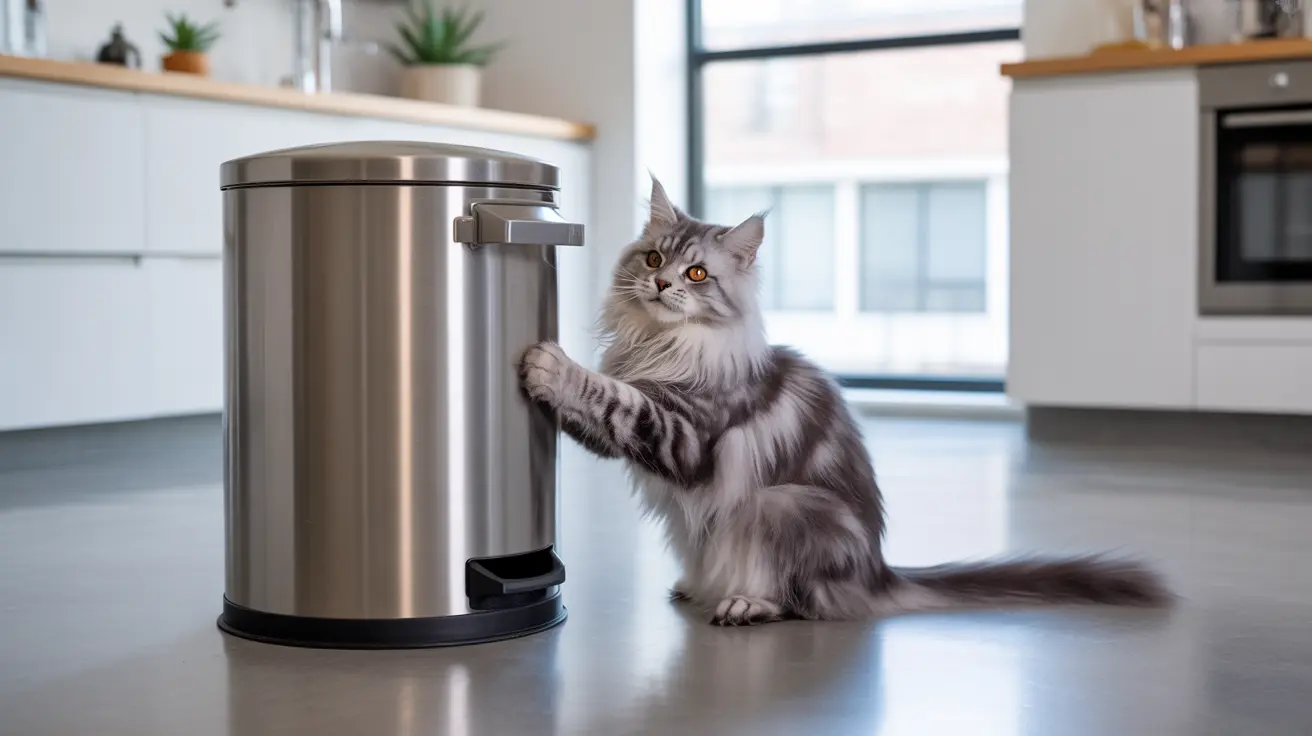If you've ever walked into your kitchen to find garbage strewn across the floor, you're not alone. Curious cats have a knack for turning trash cans into their personal treasure troves. Fortunately, cat-proof trash cans offer an effective solution to this common household challenge.
In this comprehensive guide, we'll explore the best features, materials, and technologies that make modern trash cans truly cat-proof, helping you maintain a clean kitchen while keeping your feline friend out of trouble.
Essential Features of Cat-Proof Trash Cans
The most effective cat-proof trash cans combine multiple deterrent features to outsmart even the craftiest cats. Look for models with secure locking mechanisms, such as dual-action latches or motion-activated sensors that only respond to human hands. Heavy-duty construction materials and weighted bases prevent tipping, while precision-engineered lids eliminate gaps where curious paws might gain leverage.
Choosing the Right Material
Stainless steel stands as the gold standard for cat-proof trash cans, offering superior durability and scratch resistance. These models typically feature fingerprint-resistant finishes and can withstand years of attempted break-ins from determined cats. While they command higher prices, their longevity often justifies the investment.
High-grade plastic alternatives provide a more budget-friendly option while still offering decent protection. Look for models with reinforced edges and heavy-duty construction that can resist clawing and chewing attempts.
Smart Technology Solutions
Modern cat-proof trash cans increasingly incorporate advanced features like motion sensors and electronic locks. These sophisticated systems can differentiate between human and animal movement patterns, ensuring convenient access for family members while maintaining security against pet intrusion.
Many premium models also include odor-control systems with activated carbon filters, reducing the smells that attract cats in the first place. Some even feature smartphone connectivity for battery level monitoring and custom settings adjustment.
Strategic Placement and Installation
The location of your trash can plays a crucial role in its effectiveness. Consider under-counter mounting options or corner placements that limit access angles. Keep the can away from jumping platforms like countertops or nearby furniture that cats might use as launching pads.
Some homeowners opt for pull-out cabinet solutions that completely conceal the trash can, eliminating visual temptation while maintaining easy access for humans.
Maintenance Tips for Long-Term Success
Regular maintenance ensures your cat-proof trash can continues functioning effectively. Clean the exterior and lid mechanism weekly to prevent buildup that might compromise the seal. For models with electronic components, check battery levels monthly and replace any worn gaskets or seals promptly.
Consider using scented liners or deodorizers designed specifically for pet households to further discourage feline interest in the contents.
Frequently Asked Questions
What features should I look for in a truly cat-proof trash can to prevent my cat from getting inside?
Look for features like secure locking mechanisms, heavy-duty construction, weighted bases, and tight-fitting lids without gaps. Motion-activated sensors or dual-action latches provide additional security, while smooth, vertical sides prevent climbing attempts.
How do motion-activated sensor lids work to keep cats out of the trash can?
Motion-activated sensors use infrared technology to detect specific hand movements and patterns typical of human users. These systems are calibrated to ignore cat-sized movements and require deliberate human gestures to trigger the opening mechanism.
Are stainless steel trash cans better than plastic ones for durability and cat resistance?
Yes, stainless steel trash cans generally offer superior durability and cat resistance compared to plastic models. They resist scratching, cannot be chewed through, and their weight helps prevent tipping. While more expensive initially, they typically last longer and provide better protection.
How can I clean and maintain a cat-proof trash can to ensure it stays odor-free and effective?
Clean the exterior weekly with appropriate cleaners, check and replace odor-control filters every 3-6 months, and regularly inspect locking mechanisms for proper function. For electronic models, test sensors monthly and replace batteries as needed.
What are some tips for placing and installing a cat-proof trash can to minimize access for my cat?
Install the trash can in a corner or under-counter location, away from potential jumping spots. Consider pull-out cabinet installations or elevated platforms that make access difficult for cats while remaining convenient for humans. Keep the can away from pet feeding areas to reduce interest.






